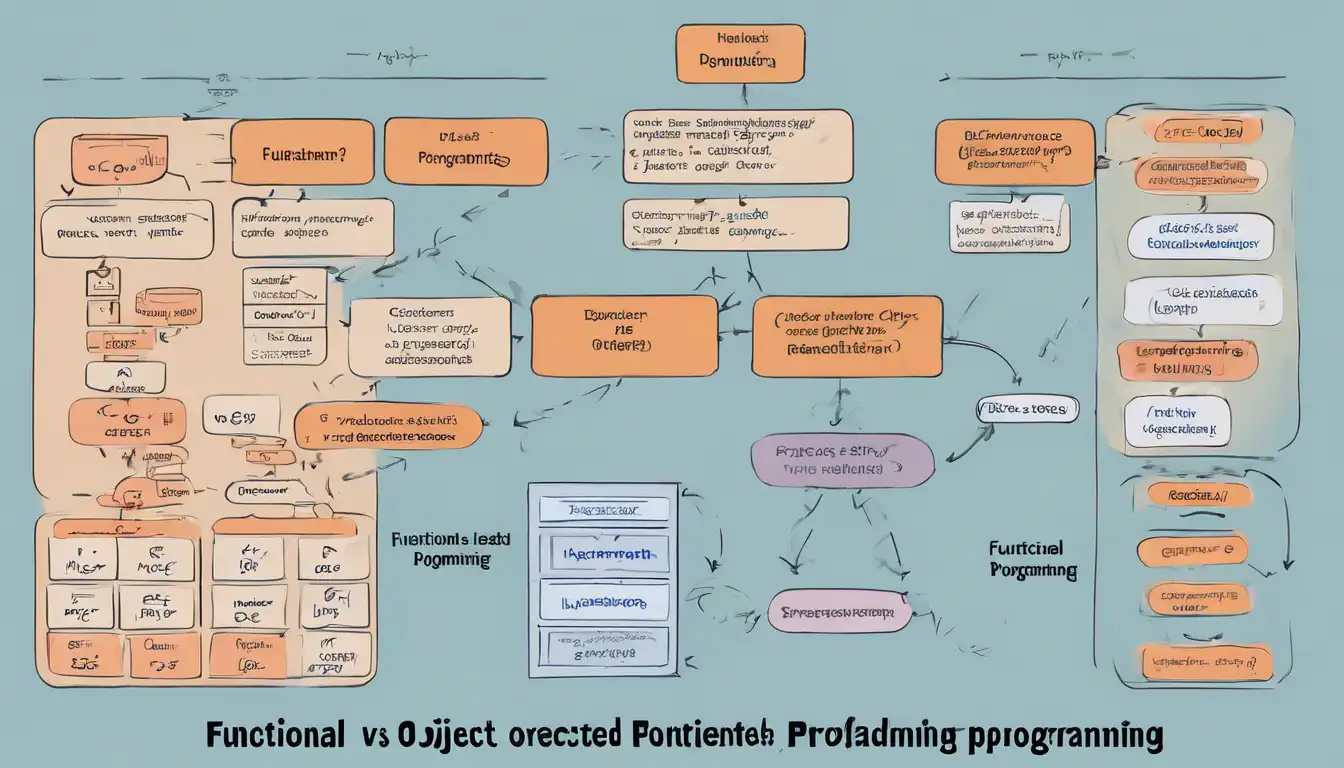Introduction to Programming Paradigms
In the world of software development, understanding the differences between functional programming (FP) and object-oriented programming (OOP) is crucial for choosing the right approach for your project. Both paradigms offer unique advantages and challenges, making them suitable for different types of problems.
What is Functional Programming?
Functional programming is a paradigm that treats computation as the evaluation of mathematical functions and avoids changing-state and mutable data. It emphasizes the application of functions, in contrast to the imperative programming style, which emphasizes changes in state.
- Immutable Data: In FP, data is immutable, meaning it cannot be changed after it's created.
- First-Class Functions: Functions are treated as first-class citizens, allowing them to be passed as arguments, returned from other functions, and assigned to variables.
- Pure Functions: Functions in FP are pure, meaning they always produce the same output for the same input and have no side effects.
What is Object-Oriented Programming?
Object-oriented programming is a paradigm based on the concept of "objects", which can contain data and code: data in the form of fields (often known as attributes or properties), and code, in the form of procedures (often known as methods).
- Encapsulation: OOP bundles the data and the methods that operate on the data into a single unit, or object.
- Inheritance: Objects can inherit characteristics from other objects, promoting code reuse.
- Polymorphism: Objects can take on more than one form depending on the context, allowing for flexible and dynamic code.
Comparing Functional and Object-Oriented Programming
When deciding between FP and OOP, consider the nature of your project and the problems you need to solve. FP is often better suited for applications where the state is not a primary concern, such as in mathematical computations or data processing. OOP, on the other hand, excels in scenarios where modeling real-world entities and their relationships is crucial.
Advantages of Functional Programming
FP offers several benefits, including easier debugging and testing due to pure functions, and better scalability for concurrent and parallel processing tasks. Its emphasis on immutability also leads to more predictable code.
Advantages of Object-Oriented Programming
OOP's strengths lie in its ability to model complex systems through encapsulation and inheritance, making it ideal for large, scalable applications. Its intuitive nature, mirroring real-world entities, also makes it easier for teams to collaborate on projects.
Conclusion
Both functional and object-oriented programming have their place in software development. The choice between them depends on the specific requirements of your project, your team's expertise, and the problems you're aiming to solve. By understanding the core principles and advantages of each paradigm, you can make an informed decision that best suits your needs.
For more insights into programming paradigms, check out our articles on procedural programming and event-driven programming.
